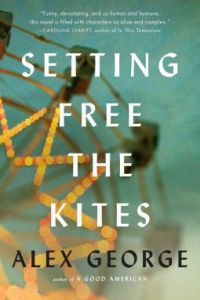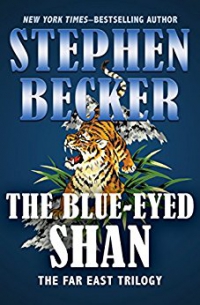Setting Free the Kites by Alex George
 Friday, March 31, 2017 at 8:51AM
Friday, March 31, 2017 at 8:51AM 
Published by G.P. Putnam's Sons on February 21, 2017
Robert Carter lives in Maine. His father owns a small amusement park that assures Robert (and most Haverford teens) of a summer job. His brother Liam has a disease that will kill him before he leaves his teens, although Liam is more optimistic about his fate than his parents. His mother’s mental stability is questionable.
Robert is bullied every year by a bigger student named Hollis. During his first beating of the new school year, a new student named Nathan Tilly intervenes. Nathan is smaller than Hollis, but fearless, at least when it comes to bullies. He seems to have inherited that trait from his raucous father, who suffers an unfortunate death while flying a kite soon after Robert meets Nathan.
There are several dramatic moments early in Setting Free the Kites, but the drama is understated, which makes it all the more dramatic. On the other hand, too many middle chapters are devoted to Nathan’s unrequited longing for an older girl who is way out his league, and to Robert’s plan, sparked by a romance novel, to encourage Nathan to express his love. That section of the book includes a synopsis of the melodramatic romance novel that I could have lived without.
Later in the novel, additional dramatic scenes, while continuing to avoid melodrama, seem contrived. The novel builds toward metaphors of flight, but its metaphorical moments lack the power that Alex George must have intended, perhaps because the metaphor — or the final action taken in support of the metaphor — is too obvious.
In the end, as the epilogue reveals, Setting Free the Kites is a coming-of-age novel. The epilogue is an information dump that updates Robert’s knowledge of the characters after his own defining moment, but in such an abbreviated fashion that the impact of the defining moment on Robert’s life is unclear. The lessons he learns — nobody is innocent, everyone shares blame — are good but a bit simplistic. Still, George’s prose is graceful and the characters are fully developed. Setting Free the Kites has some shortcomings, but every serious novelist seems compelled to write a coming-of-age novel, and this one is better than most.
RECOMMENDED



